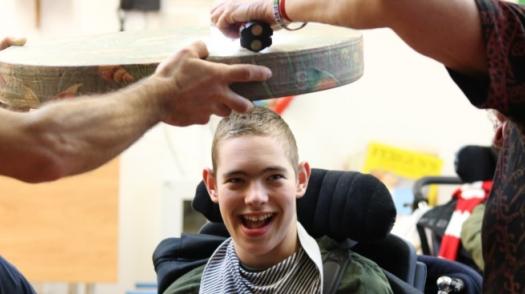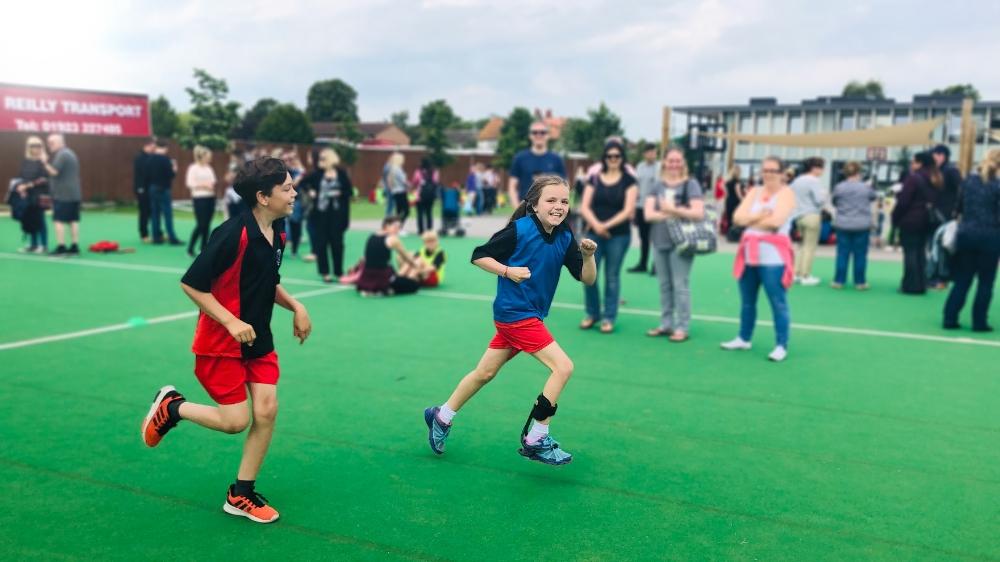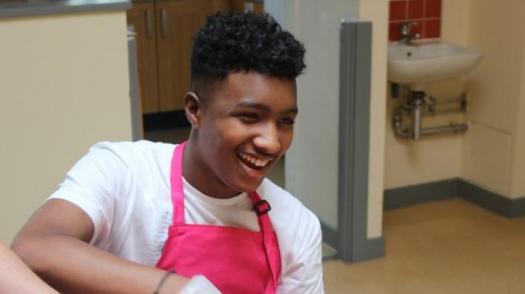
Finn's story
Finn was diagnosed as having a mitochondrial disease, a chronic, genetic disorder, at just seven months old.

10 year old Issy and her family have now been isolating at home for over three weeks. However, she’s determined that this current situation will not stall her rehabilitation progress.
In June 2018, eight year old Issy was about to start her weekly dance class when she had a severe ischemic stroke caused by a blockage cutting off the blood supply to the brain. Issy was fit and healthy, with no pre-existing health issues.
Issy was transported to St Peter’s Hospital in Chertsey, and placed into a medically induced coma before being transferred to St Georges Hospital in Tooting, where she was taken to the PICU ward. There an MRI scan confirmed that Issy had in fact, had a stroke.
“I knew what a stroke was”, explains mum Candice, “and I knew that they continue to be one of the leading causes of death and disability in the UK – but what I didn’t know was that a stroke can affect anyone.”
Issy woke up on her third day in hospital. She couldn’t talk, she couldn’t sit. She just lay there. “Seeing her awake, I could finally breathe again. You could see it in her eyes she was scared”, says Candice, “but she tried to give us a smile.” Issy was diagnosed with aphasia – a speech and language impairment - and paralysis on the right side of her body, with drop foot. The stroke had left her unable to talk, to swallow, to walk or even to sit unaided. She had lost all her basic skills.
Issy was transferred to the Nicholls Ward and surprised everyone when she started to make progress. Her speech slowly improved, she re-learnt to swallow foods and was soon able to stand and sit unaided. Drinking fluids and walking took a little longer. Issy had severe drop foot and a hyper extended knee which would snap back when she put any weight on the right leg.
Exactly eight weeks after her stroke, Issy arrived at The Children’s Trust in Tadworth, Surrey for an intensive rehabilitation programme. Issy was talking, but in simple sentences. She had a short attention span and still struggled finding words. She could walk but needed to strengthen her muscles around her hips and glutes in order to minimalise the limp she had, and had no strength in her right arm.
At The Children’s Trust, Issy’s rehabilitation included Occupational Therapy, Speech and Language Therapy, Hydrotherapy and Music Therapy. Physiotherapy was twice a day with each session being slightly different to keep Issy focused and engaged.
Exercises included walking forwards and backwards on a treadmill to retrain her brain in heel to toe walking, and reaching up with her right arm to touch or pop bubbles. Eventually as Issy got stronger, sessions could take place outside to help her find ways of using the playground equipment safely.
“One of Issy’s goals was to climb the rock wall, and eventually she managed to do just that. The day Issy completed the first low level wall, is one we will never forget. Something that other children her age could take for granted, was such a pivotal moment in Issy’s recovery journey and inspired her to then set more goals – and go on to achieve them.”
In November 2018, three months after arriving at The Children’s Trust, Issy rang the going home bell to signify the end of her rehabilitation and celebrate all that she had achieved. Two weeks after leaving, Issy went back to her mainstream school, and within days of being back, she had competed in her sports day with no support, and signed up for a golf tournament.
Issy continues to surprise friends and family with her remarkable progress. She went back to her dance class, ran her first 2k park run, and has even started rock climbing lessons. She’s also conquered the ArcelorMittal Orbit – the world’s longest tunnel slide – based in the Queen Elizabeth Olympic Park in London.
“There are no words to describe just how grateful we are that Issy came to The Children’s Trust. It provided us all with a safe environment to come to terms with what had happened and felt like home very quickly. Issy arrived weak and unsure of her future, but walked out confident, happy, independent and excited to get on with her life. The Children’s Trust has given us our Issy back.”
Of course normal routine has changed a lot since stricter government guidelines were introduced last month, “but Issy is dealing with isolation brilliantly,” explains Candice. “Every morning we do a workout class before school activities. We’ve tried Joe Wicks’ classes, ‘Wake up! Shake up!’ routines with Issy’s school dance teacher, meditation and yoga.”
Issy and her friends have also been able to set up online rehearsals to keep up their love of singing and dancing. “They are busy re-enacting scenes from their favourite TV show,” said Candice, “and I can’t wait to see them all performing together again once this period of isolation is over.”
"Thankfully Issy is still able to work with her PT, Mark, every Monday and Friday afternoon online so she can continue with her rehabilitation. She’s incredibly determined that the current situation will not stall her progress, so is also doing her own exercises at home as well, and cycles a lot on our stationery bike.”
“As well as her own recovery, she is now also focussed on raising awareness of childhood stroke and supporting other children in similar situations. We are incredibly proud of her.”

Finn was diagnosed as having a mitochondrial disease, a chronic, genetic disorder, at just seven months old.

On the 16 November 2018, 10-year-old Joey was at school when he noticed a "strange taste in his mouth". When he went to have a drink of water, Joey discovered he had lost the ability to talk and use his right arm. It was immediately apparent to teachers that something was very wrong.

Like most teenagers, Jake was a very social, independent boy before an operation to remove a brain tumour caused his brain injury.